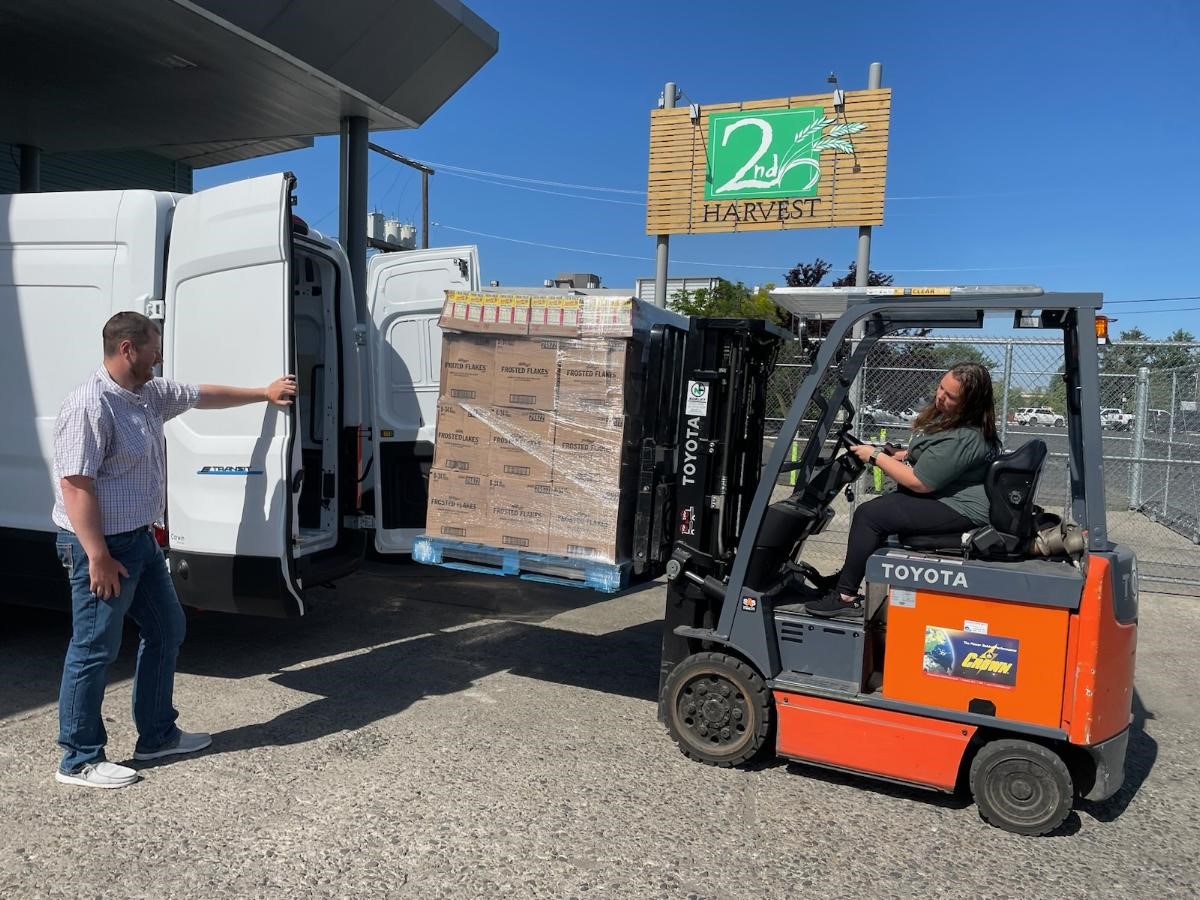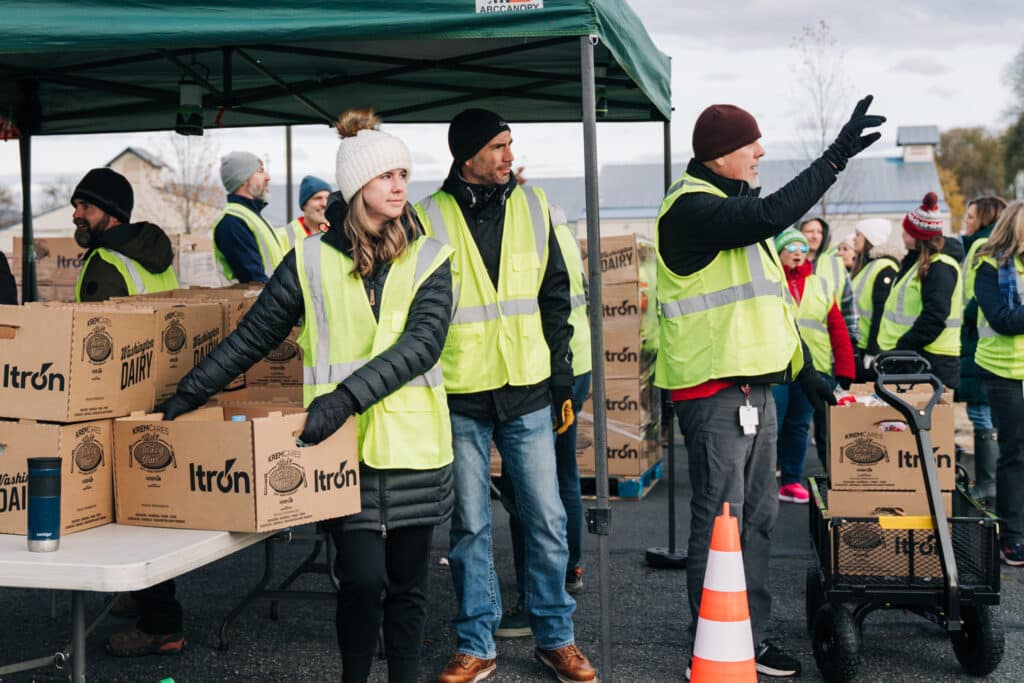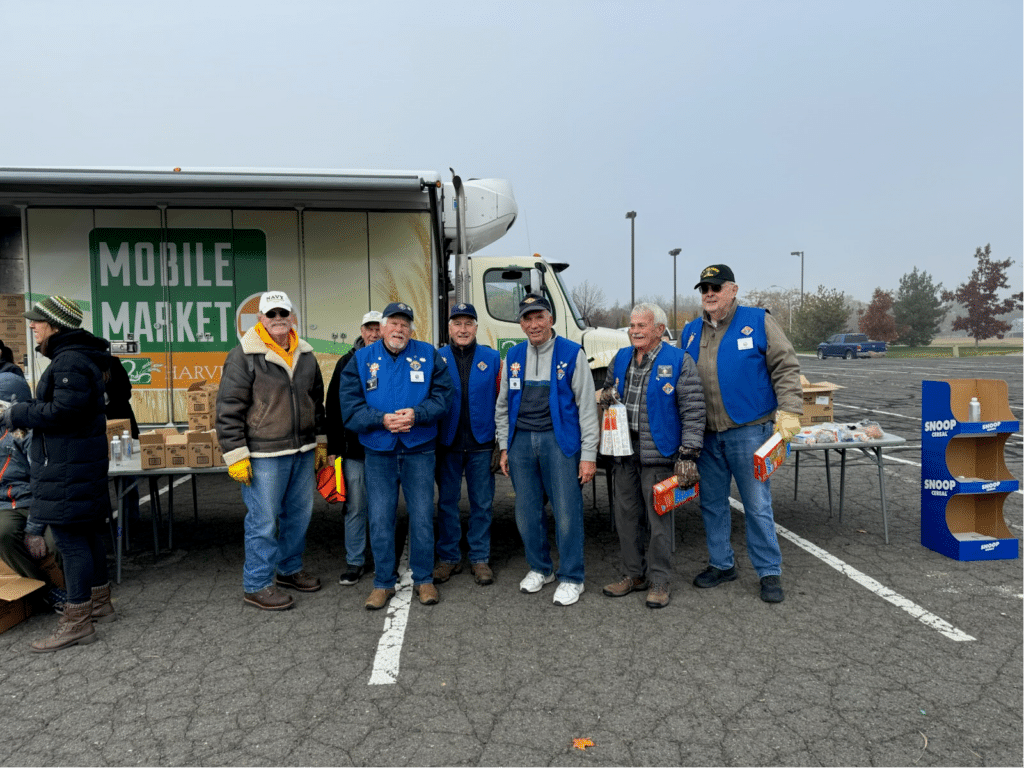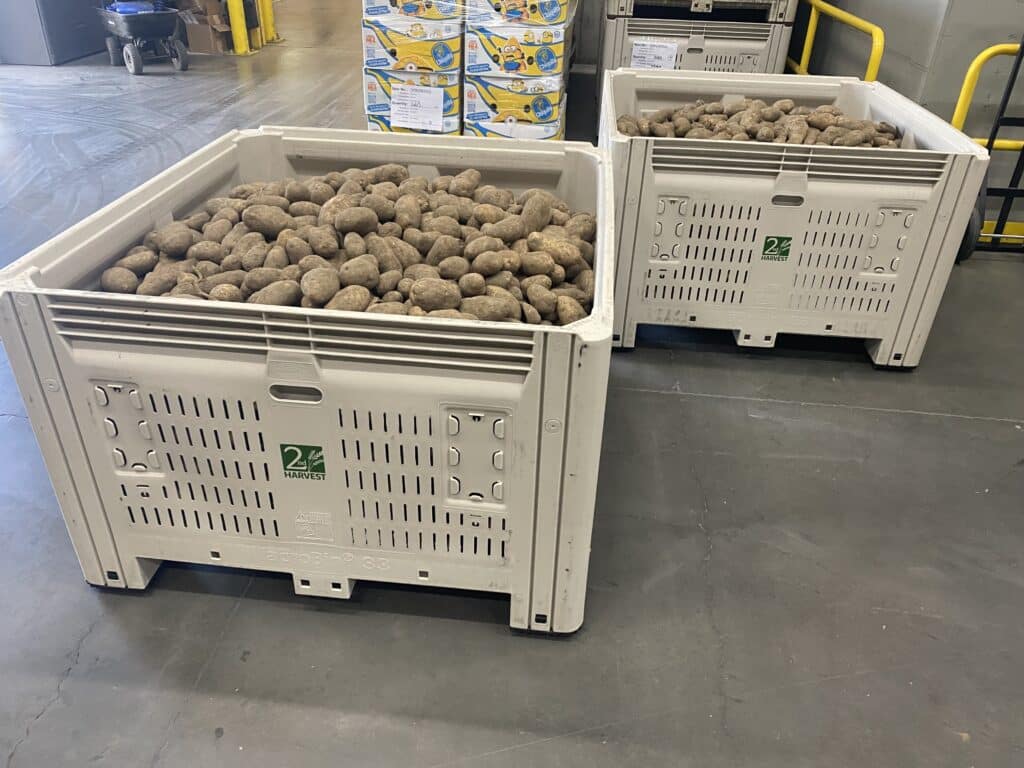Partner Food Pantries Plug into Electric Vehicles – June 23
Author: Eric Williams
Our motto is “Serving people facing hunger.”
Doing that takes many people doing a variety of work — farmers and ranchers who start the cycle, harvesters, packers, processors, on through the volunteers working on the front lines at local pantries or staffing our Mobile Market free food distributions.
Transporting food from point A to point B isn’t usually the first aspect that comes to mind, yet it’s an integral piece of getting food to people who need it most. It’s also one of the most logistically complex and challenging details in getting the job done.
Oversimplifying, for us transport breaks into two categories: retrieval/incoming and distribution/outgoing. We operate two warehouses, one in Pasco and another in Spokane, where the bulk of the food we handle comes in, is sorted for freshness, broken down into family-size portions and stored safely until it’s distributed into the community. Our fleet of five trucks handles most of the retrieval, though sometimes food donors also deliver to us, typically by semitruck-sized loads.
Most of the distribution these days is done in two ways:
-
- We take large quantities — again, likely a semitruck load — to a partner that serves as the hub, or redistribution location for their region. Other partners then come to that site to pick up for their local pantry.
- Partner agencies come to our Pasco or Spokane warehouse and pick up their allocations.
One of the biggest obstacles for some partners is having a vehicle that is built for picking up large — though not semitruck-sized — loads. With a generous grant from the Washington State Department of Agriculture, we recently purchased five electric vehicle (EV) vans from Corwin Ford Spokane, which is one of our many stalwart supporters.
After careful consideration, Second Harvest gave the vans to the following partner agencies:
-
- Our Place
- Mead Community Services
- Salvation Army
- Serve Spokane
- Spokane Valley Partners
WSDA funding amounted to just over $340,000, or a bit over $68,000 each. EV vans currently can travel 105 to 125 miles on a full charge, so their range is limited, but they work well for relatively short-haul trips.
“Spokane Valley Partners has three box trucks that we use for freight pickup and delivery, and our mobile food bank. One is gas and the other two are diesel,” explained Cal Coblentz, CEO of Spokane Valley Partners. “At less than 10 mpg, it costs a lot of money every time we fire them up for a task. When Second Harvest suggested the idea of purchasing some cargo vans with extra funding, we immediately said, ‘Let’s go electric!’ Our electric Ford E-Transit costs about 5 cents per mile to operate, which is one-tenth the cost of driving our big diesel trucks. For many of the smaller tasks, such as grocery rescue and quick local trips, our transit van is now on duty. We’re very grateful for this tremendous asset to our mission and the savings it represents to the donors who fund our mission. Thank you!”
CONTACT US
FOOD NEAR ME
DONATE
VOLUNTEER
facebookinstagramtwitterlinkedinyoutubetiktokFeeding Eastern Washington and North Idaho
Copyright 2020 Second Harvest. All rights reserved.





